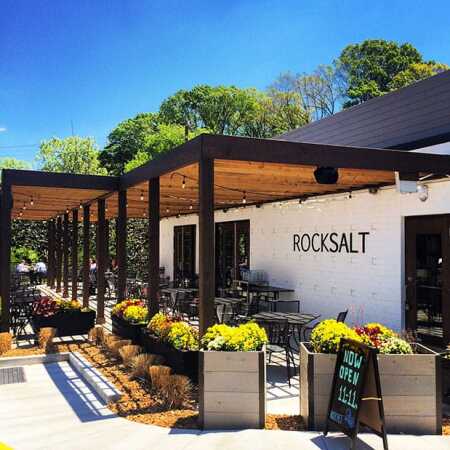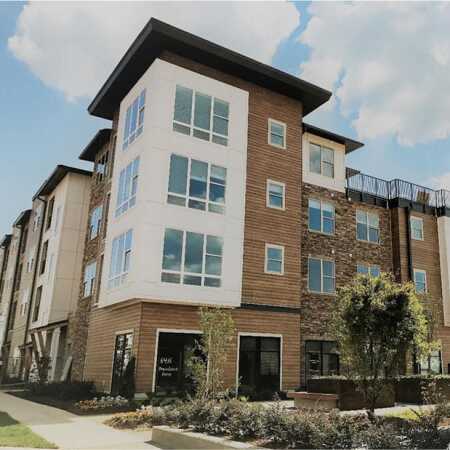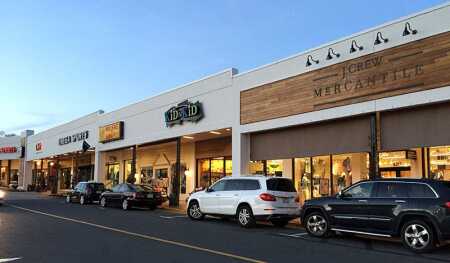
After buying Park Road Shopping Center in Charlotte, North Carolina, in 2011, Edens spent the first few months simply studying consumers’ patterns there. It identified that the shoppers were multigenerational, and that the center quieted down around 6 p.m. In response, the firm added a range of new restaurants, stores, and services, and also created events that would encourage people to spend time at Park Road, including this farm-to-table concept.
Today’s young professionals with discretionary income are asking for deeper engagement with their surroundings, a greater sense of ownership, and fewer barriers between work and play, connecting on a personal and emotional level with their environment. Panelists speaking at ULI’s 2018 Carolinas Meeting in February discussed what that might mean for the marketing and design of retail, office, and residential projects.
“When people come together, they feel a part of something bigger, and prosperity follows. That leads a lot of the work that we do,” said Norma Morales Perez, a senior vice president at Edens, a development company headquartered in Bethesda, Maryland.
Edens’s goal is to build brand loyalty—even if, in this case, the brand is a location rather than a product. “Where you choose to spend time and money and emotional experience is about brands, those that stand out,” she explained. “We go with our gut feeling. So, the question is how to tactically execute on gut feeling.”
In this, Edens is guided by the hierarchy of human needs developed by American psychologist Abraham Maslow in 1943. His framework posits that people are first driven to simply survive; after that, they successively seek security, community, self-esteem, and finally personal fulfillment.
Those elements can translate into a retail setting, Perez explained. The first need is met simply through convenience or price (e.g., picking a particular coffee shop because it is close by). After that, though, a consumer might choose to patronize a particular café because its offerings are high-quality, or because he or she has friends there, or because it provides “Instagrammable moments.” And in the end, that coffee shop simply feels right. At that point, Perez pointed out, a relationship exists. That means the buyer “will forgive the brand if necessary.”
Edens combines those efforts with old-fashioned market research. For example, after buying Park Road Shopping Center in Charlotte, North Carolina, in 2011, the firm spent the first few months simply studying consumers’ patterns there. It identified that the shoppers were multigenerational, and that the center quieted down around 6:00 in the evening.
In response, Edens added a range of new restaurants, stores, and services, and created events that would encourage people to spend time at Park Road. And it worked. “Shop sales have increased by more than 70 percent since 2011, and there are now 60,000 trips to the center,” said Perez. “It’s really been embraced by the community.”
Holly Christian, the design director at Gensler in Charlotte, agrees that the key to a great project is figuring out the “why” of someone’s presence. Gensler recently released its Experience Index, a report examining the factors that influence how consumers feel about different spaces—office spaces, in this case. Are users there for a specific task, or are they seeking downtime, looking to be social, or hoping to discover something?
Unsurprisingly for a design company, Gensler found that across the board, spaces that are beautiful, authentic, novel, and inspiring and that have a welcoming vibe are still the most popular. It’s also key, Christian added, that buildings these days be flexible.
“Everyone is doing everything everywhere,” she said, and offices need to accommodate that by including social spaces throughout their buildings. “Where people gather is where you can do all kinds of work,” she explained. “No space is a single-use space.”

Novel Providence Farm, a multifamily development in Charlotte that opened in November. Using a detailed research process, Crescent Communities determined that area residents valued family, educational opportunities, and healthy living. In response, the company decided to build the new development around food.
Charlotte’s Crescent Communities, which focuses mostly on residential properties, has undertaken a similar project: understanding how consumers today think about and use their homes. Michael Tubridy, the company’s managing director, explained that Crescent Communities researched the elements that today’s renters seek, and came to five main conclusions: renters prefer experiences over material possessions; they want their homes to reflect their individual values; they desire adaptable spaces that allow for opt-out or opt-in engagement; they prefer walking access, even if they do not use it; and they aim to have authorship of events in the community.
From those elements, Crescent Communities created six psychographic profiles to fit different types of renters, focusing on values like social orientation or family focus. “We shifted our programming from demographics—like trying to appeal to millennials—to emotional behavior,” said Tubridy. “We might select one or two psychographics and really home in.”
Case in point: Novel Providence Farm, a multifamily development in Charlotte that opened in November. Using a detailed research process, Crescent Communities determined that area residents valued family, educational opportunities, and healthy living. In response, the company decided to build the new development around food.
The vision is “inspired living for Charlotte’s culinary culture,” and the project is built around that concept. The leasing office is located in a functioning restaurant space, and the site includes an outdoor demonstration garden, a fruit and nut orchard, community garden plots, and edible landscaping. Inside, the units are heavy on natural light and are based around the kitchens, which feature farm sinks and slide-in gas ranges.
So far, the project has been a hit, said Tubridy. In three months, the units are leasing 35 percent faster than those at comparable properties, and rents are 10 to 15 percent higher.
To Tubridy, that is a vindication of Crescent Communities’ new approach. “Now it’s not just who the consumer is, but what [his or her] values and traits are,” he said. “This might not be a place for anyone, but it will be the only place for some.”





